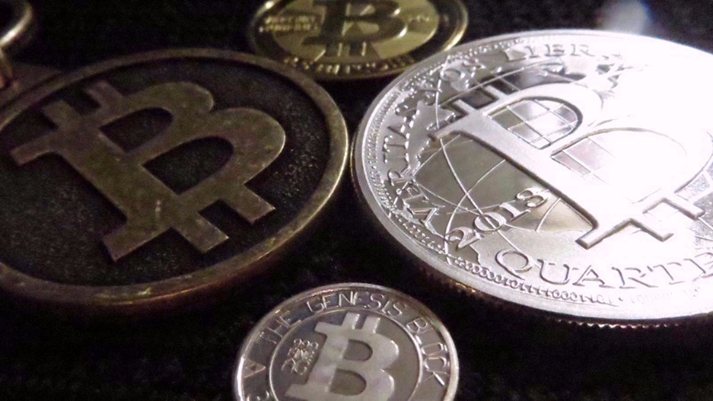The Bitcoin Exchange Traded Fund was denied. The crypto currency’s price declined considerably after the Securities and Exchange Commission announced its verdict. This application for ETF was a widely discussed topic for two years until SEC officials rejected said claim on the grounds Bitcoin is not regulated. Market price crashed from $1,350 to $1,080 right away although it recovered steadily soon after, followed by an unrelated dip down. Hopes were relatively high in the community prior to this decision and analysts offered conflicting theories.
SEC Judgment
Coin Telegraph was confident the ETF would be approved. Michael Vogel, the chief executive officer of NetCoins informed Coin Telegraph he harbored mixed feelings before the SEC made its revelation. It could have affected the growth of Bitcoin.
Bitcoin is influenced by expanded “global use cases.” What does this mean? Mr. Vogel explained the Bitcoin and Blockchain platform characterize moderately revolutionary technology in a generation where financial institutions like banks and bureaucracies are taking on the Blockchain but are not sold completely to the Bitcoin. Nonetheless, SEC’s ruling does not necessarily affect the market in the long-term.
Some stakeholders like Simon Dixon (co-founder/CEO of BNKTO THE FUTURE) say the Bitcoin ETF was ill-advised and negative to the currency. According to Mr. Dixon, this ETF will pave the way for counter-party risks into the virtual currency. This phenomenon is a specific example wherein standard policies reduce consumer protection because of efforts in squeezing Bitcoin into a conventional investment tool.
Approval of the Exchange Traded Fund would have made the Bitcoin more inadequate and possibly cause the price to increase. Users of said currency must be happy with the SEC’s pronouncement since removal of huge amount of coins from circulation will make the BTC more volatile, subject to regulation and controlled by instructional money. Disapproval of the ETF means investors need to use the currency minus counterparty risk which is the original intention.
The SEC articulated, “The Commission disapproves the proposed change in policy because such proposal is not consistent with the Section 6 (B)(5) of the Exchange Act which mandates that rules of national securities exchange must be formulated to avert fraud, manipulative actions and practices as well as protect interests of consumers and investors.”
Negative Outcome
A lot think of negative consequences as evidenced by the 20 percent crash of Bitcoin price after SEC broke the news. The rationale was people believed the ETF will raise demand for the crypto currency and price will go up further. Yet, there is more to it than the rejection and decline of Bitcoin. It is all about strength of the currency and the veto might have been helpful.
Price of Bitcoin has escalated since 2016 as user-friendliness continues to improve and real demand is seen. In fact, the Securities and Exchange Commission helped endorse the BTC as unregulated and shift from reserve status. This is important for individuals or entities looking for financial assets that do not belong to the usual categories. Nonetheless, said denial may not bode well for investors. The Agency’s rebuff could lead to zero trade while unapprised investors pour in funds and see their money washed out.
For the Bitcoin, this matter will be of no consequence in the future and market price may even increase more than $2,000 and reach $5,000 within a few years. This conclusion may seem too buoyant but even as prices plunged following the BitFinex exchange hack wherein over $60 million worth of Bitcoin were stolen, investors have realized 100 percent returns on their investments recently. Regardless of whether Bitcoin is finally accepted as mainstream mode of exchange and trading, it will remain an asset and appreciate further.
Conclusion
Overall, the SEC resolution may be deemed as a mere interference for a financial asset that is experiencing birth pains and vying for global acceptance. At present, only a small number of persons really understand what Bitcoin is and how it is traded. However, this population will redouble eventually as Bitcoin gains acceptance among consumers who did not have any idea about this currency previously.
Bitcoin is not a tangible asset. It is dependent on information infrastructure so it can be transacted. This virtual currency may serve as effective hedge against other monetary assets. Supporters of Bitcoin are very confident in bringing the crypto currency to the traditional market and conform to the SEC ruling.
The founder and chief executive officer of Crypto Compare, a Crypto Currency data site, shared these thoughts: “The junking of the ETF totally obliterated hopes Bitcoin will be one of the players in the mainstream finance community.” He also said what the SEC did does not avert the introduction of BTC exchange-traded commodities. There is no assurance other jurisdictions will adopt the currency and everything is in the air since the SEC rule set the precedent.
On the other hand, some supporters of Bitcoin such as Adam Back, chief executive officer of the Start-up Blockstream prefers to call this a simple and temporary delay. Sooner or later, Wall Street as well as Main Street investors will adopt this potential financial technology of the new era. Meanwhile, the CEO of ETF.com, Dave Nadiq, ranted that the unregulated quality of Bitcoin is inherent in the virtual currency. The SEC assessment, no matter how downbeat, is not at all surprising to the,.
Source: Read Full Article



